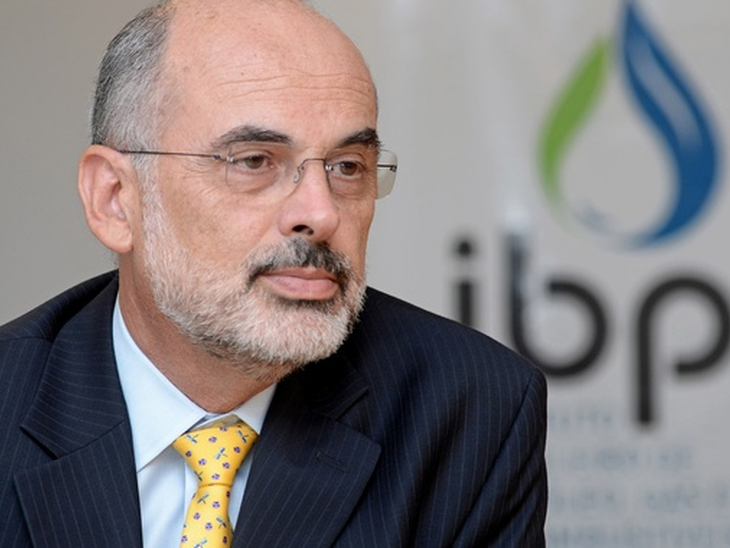
 Environment
Environment
T&B Petroleum/Press Office

During the 4th Brazilian CO2 Congress, experts discussed the challenges and opportunities of a low-carbon economy.
In a general context of climate change and environmental policies, uncertainty in oil prices, new sources of energy and geopolitical threats, in line with the global commitment to reduce CO2 emissions, the Brazilian Institute of Oil, Gas and Biofuels (IBP) promoted the 4th Brazilian CO2 Congress in Rio de Janeiro from June 28 to 29. With the objective of discussing the technical and scientific aspects associated with CO2 emissions by the Brazilian oil industry, the event brought together specialists in the theme and the sector.
According to Milton Costa Filho (photo), general secretary of the IBP, the technologies of capture, transport and destination of CO2 are of vital importance for Brazil. "The Brazilian pre-salt is one of the three most attractive environments in the world for conducting business in the oil sector along with the unconventional American and Middle Eastern reserves. In this sense, the technologies associated with CO2 will be fundamental for the development of the pre-salt and to guarantee the economic use of these reserves, "he said.
According to José Mauro Coelho, director of studies on Oil, Gas and Biofuels for Energy Research (EPE), Brazil has an immense exploratory potential, mainly in the pre-salt - which translates into the possibility of the country becoming one of the five largest oil exporters in the world in 10 years, generating 3.6 million barrels per day in 2030. In addition, Coelho points out that Brazil has a huge comparative advantage in the sector, being the second largest producer of ethanol and biodiesel .
"The implementation of the National Biofuels Policy (RenovaBio) will promote the adequate expansion of the production and use of biofuels in the national energy matrix. The expectation is that, by 2030, the country will produce 49 billion liters of ethanol, "Coelho said.
Currently, 20% of transport consumption is already from renewable fuels. According to Maurício Tolmasquim, professor of Energy Planning Program (PPE / UFRJ), the strong presence of biofuels and the large representation of the hydroelectric source in the Brazilian energy matrix put the country in an advantageous position. "The production of US $ 1 in Brazilian GDP emits less greenhouse gases in countries like the United States and China," he said.
However, the great challenge of Brazil regarding the emission of CO2, however, is related to deforestation. According to Régis Rathmann, a member of the General Climate Coordination of the Ministry of Science, Technology, Innovation and Communications, Brazilian emissions in terms of fuels are satisfactory. "The energy sector is emitting less greenhouse gases. However, globally, Brazil is moving towards non-compliance with the goal established at COP21 if it does not resolve the issue of deforestation, "he said.
Successful Initiatives
During the "CO2 Associated Technologies" panel, Wilson Mantovani Grava, manager of R & D in Cenpes / Petrobras Production Development, explained that Petrobras currently produces 80 million cubic meters of natural gas in the pre-salt fields located in the Basin of Santos. In all, 16 FPSOs operate on such reserves, nine of which already operate with CO2 separation technology from natural gas.
"Since 2008, we have already separated and re-injected 7 million tons of CO2. Today, Petrobras' capacity is 2.5 million tons per year, a result reached in the Santos Basin last year. The new fields discovered in the pre-salt, however, have a higher ratio of gas to oil, which consequently increases the concentration of CO2 to levels that can reach 45%. That is, as an industry, we need to be more efficient in the topside processes, which already operate with tons of equipment. For this, we need new technologies, "said Grava.
Another important player in the Brazilian oil and gas sector, Equinor has adopted an ambitious goal regarding CO2 generation in exploration production, according to Fabiano Lobato, director of the company's Rio de Janeiro Research Center. Responsible for approximately 3% of Brazilian oil production, Equinor generates 9kg of CO2 per barrel - which means almost half of the industry average, which is 17kg / barrel.
"Equinor's expectation is to reduce by 2030 to 8kg of CO2 per barrel throughout the production process. In the company's projects in Brazil, the goal is to reduce the current 20kg / barrel in Peregrine to 11kg / barrel in phase II. In Carcará and Norte de Carcará, the generation is 4.9kg / barrel, "explained Lobato.
Global trend
The tendency to adopt more sustainable processes and solutions, however, is global - given, in particular, to the move towards a low carbon economy. With more than one billion people in the world without access to energy, which also translates into poor quality of life, demand tends to increase. In this scenario, all companies in the oil and gas sector are attentive to the energy transition.
"Overcoming inertia, in general, means great opportunities. This means that energy solutions for the low carbon world must come from the industry itself, that is, from the oil industry, "said Sergio Margulis, coordinator of the Adaptation Chamber of the Brazilian Forum on Climate Change and senior researcher at the International Institute for Sustainability and WayCarbon.
Proof of this move is the Oil and Gas Climate Initiative (OGCI), a group led by presidents of oil and gas companies with a year and a half of existence. According to Rob Littel, representative of OGCI, the objective of the initiative is to develop practical actions and provide solutions for a sustainable future with low greenhouse gas emissions.
"The expectation is to achieve a reduction of 1Gt / year of greenhouse gases. To that end, OGCI members are investing US $ 1 billion in technology generation over the next 10 years with the intention of removing technical and commercial barriers across the value chain, "said Littel.
The 4th Brazilian CO2 Congress was sponsored by Petrobras, Shell, Equinor, Total, institutional support of Capes and CNPq and media support of TN Petróleo.
Contact us